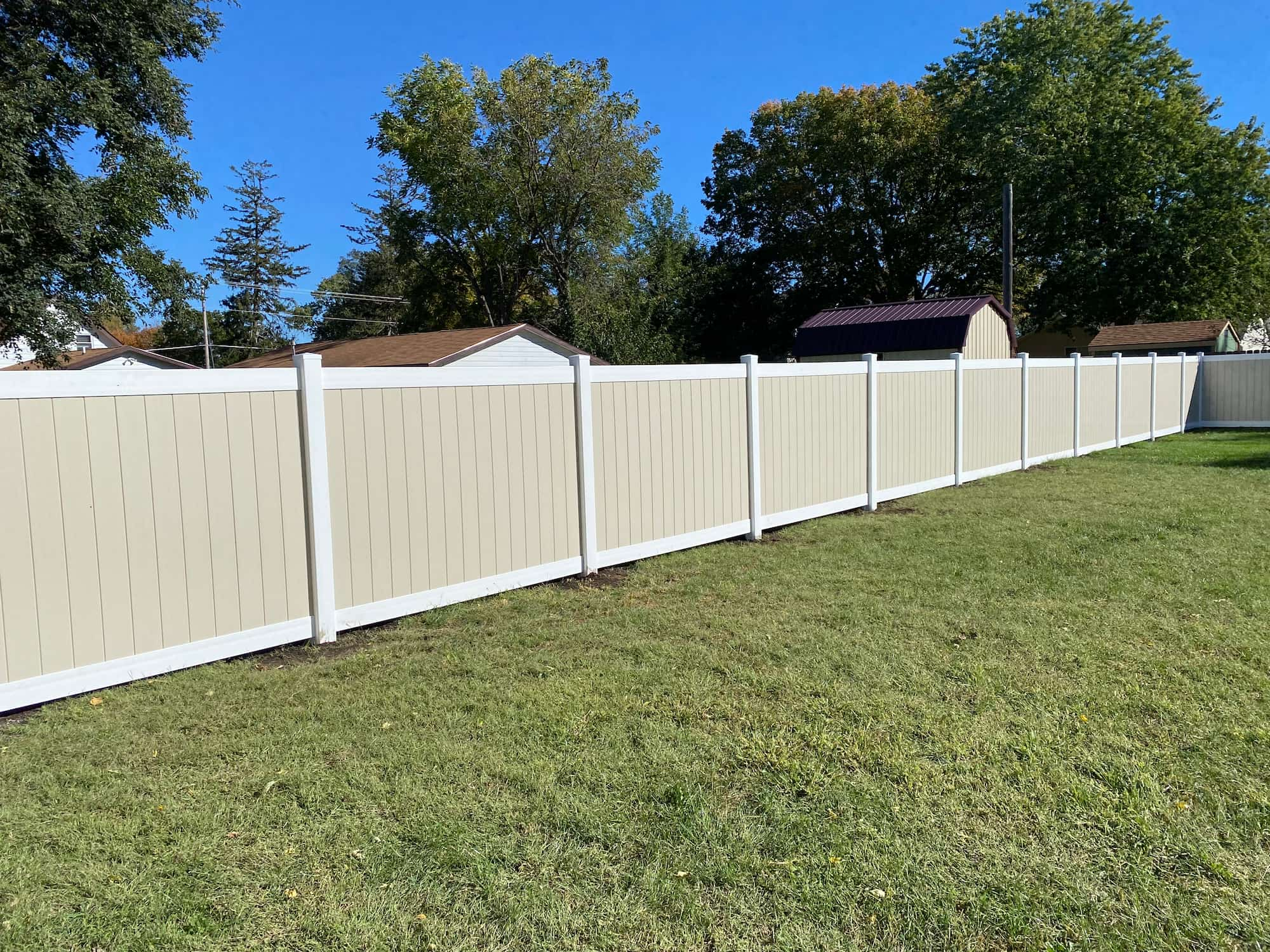Solved! Do I Need a New Construction Home Warranty?
Q: Our real estate agent has recommended that we ask for or purchase a home warranty for our home. We thought warranties were for older homes where appliances might break down, but our home is brand-new construction. We have a builder warranty and homeowners insurance. Why would we need a separate home warranty? What does a new construction home warranty cover?
A: Congratulations on your new home! Moving into a new construction home can be exhilarating: Everything is fresh and clean, and new homes don’t come with many of the quirks that older homes have, like sloping floors and trick furnaces—except that sometimes they do. Ideally, in a new construction home everything is plumb and true, correctly installed with no corners cut, and ready to go. The difficulty is that this isn’t always the case, and even when it is, “all new” doesn’t mean there won’t be any problems. A builders warranty on a new home won’t necessarily cover what you expect it will, and homeowners insurance only covers damage caused to the home, not appliance or structural failures. In some ways, finding the best home warranty for new construction is even more important than it is for an older home. You’ve just made a huge investment, so it’s worth it to protect yourself financially from the events that can occur as a new home settles in.
A home warranty is a service contract between the homeowner and the warranty company: The homeowner pays an annual premium, and then when a repair of a covered item is needed, the homeowner calls the warranty company, files a claim, and pays a preset service call fee. A technician will come to the house, assess and fix the problem, and the warranty company will cover the cost or replace the appliance or system if necessary. Homeowners can select policies that cover only whole-house systems, such as HVAC, electrical, and plumbing, or policies that cover kitchen and laundry appliances. In addition, combination policies that cover both systems and appliances can be purchased, with add-ons such as septic systems, pools, and spas. There are, of course, limits and conditions. First, the homeowner is expected to keep up with basic maintenance. A warranty can be invalidated if the issue is found to be caused by homeowner neglect. In a new construction home, this isn’t usually a problem, because everything is new. Second, every policy has coverage limits. Usually there are limits per service call and annual limits on each system or appliance. Home warranties are generally affordable and make it easy to budget for repairs and replacements of costly systems so you won’t be taken by surprise or hesitate to call for repairs because of the potential cost of a repair.
A home warranty can offer a financial safety net for homeowners— even those who buy brand-new construction.
It’s all new! What could go wrong? Actually, a lot of things can go wrong in a new home. Newly built homes haven’t been lived in, so the little things that homeowners find and fix haven’t been found yet. Until the shower has been turned on and off twice a day for 6 months, the weak spot in the welding may not show itself, and the short in the oven’s control panel may not be noticeable until after that first holiday feast. Even the best builders can make mistakes or unintentionally use defective materials, and sometimes those problems won’t show up until after the home builders warranty has expired. A new home warranty from a residential warranty company can help alleviate the financial burden of those surprises that might otherwise be expensive repairs.
Most newly built homes come with a builder warranty, which covers major structural elements, materials, and electrical and plumbing systems—but a builder warranty might not be enough.
It’s completely reasonable to expect that the home builder should stand behind their work, and the list of covered problems on the warranty that the builder provides to new homeowners is impressive. However, there may be some exceptions and loopholes in builder warranties. First, it’s important to check and make sure that the builder warranty has transferred to you. Most builder warranties do transfer to the person who purchases the home, but some do not. Before relying on the builder warranty coverage, it’s important to carefully read the policy.
In addition, builder warranties have coverage limits. Some cover manufacturing defects but not workmanship errors, and others may not include outbuildings or appliances. Failures that aren’t covered by the builder warranty can be expensive to repair, and new homeowners often haven’t had the chance to rebuild their savings after their home purchase. Putting unexpected repair costs onto a credit card can sink new homeowners into unanticipated debt that’s hard to dig out from.
A home warranty can cover appliances and systems that are not typically covered by an existing builder warranty.
Generally speaking, builders warranties don’t cover home appliances or anything that is protected by a manufacturer warranty. If an appliance fails while under its initial manufacturer’s warranty, the homeowner should have recourse through the manufacturer. However, it’s important to make sure the warranties for these appliances have been transferred to the homeowner; if they are still registered to the builder, it may be harder to make a claim. Similarly, if the appliance was purchased early in the building process, the manufacturer’s warranty may have expired well before the homeowner even had the opportunity to turn on the appliance and check that it works properly. A home warranty contract will cover the cost of repairing or replacing appliances that break down or don’t function correctly.
Also, builder warranties are often quite specific about the scale of defects they’ll cover. The warranty policy will have a clear list of what the builder will repair and what they will not. If a homeowner encounters a problem that isn’t on the list, even if it seems obvious that it should be covered, it likely won’t be.
Even new constructions can have unforeseen issues. A home warranty can help cover the cost of repairs.
One important thing to note: Builder warranties are backed by the builder. If the building company goes out of business or enters bankruptcy, the warranty becomes worthless. Unfair? Yes. Unsolvable? Luckily, no. A new home construction warranty will cover the costs (within the policy limits) of repairs and maintenance work on covered systems and appliances in the home regardless of whether or not the problem should have been covered by a builder warranty.
Human error and builder inexperience can lead to issues in new constructions. A home warranty can help cover the costs associated with fixing those errors.
Even excellent builders with great reputations can make mistakes, and new builders have to start somewhere—which can also lead to mistakes. If the drywall starts cracking 6 months after the homeowner moves in, or worse, the foundation wasn’t properly prepared and begins to shift and crack, it’s likely that the builder will repair the workmanship and correct the problem.
Sometimes, however, repairs are needed because a worker took a shortcut or failed to get the proper permit. These errors can result in fines, extra expenses to bring the work up to current code, and sometimes complete overhaul of an installation. While the builder warranty may cover the repair itself, it will not cover the cost of upgrades necessary to meet codes. These costs may include permit fees, additional construction, additional or upgraded material, and labor costs. Homeowners insurance won’t cover those costs, either. A home warranty will likely cover both the cost of the repair itself and any necessary work to bring the installation up to code.
A home warranty can offer extra protection beyond that what the builder warranty covers.
Builder warranties are essentially a guarantee of the builder’s workmanship for a limited period of time. They’re helpful, but limited. A home warranty allows homeowners to budget for repairs and replacements. Because home warranties keep the cost of a repair level, it’s less panic-inducing for a homeowner to call for a repair, which results in prompt correction of small problems. Savvy homeowners know that small problems don’t go away—they become bigger, more expensive problems, so having the confidence to call for a small repair without fear of a financial catastrophe often means that systems and appliances are better maintained overall.
It is important to note that home warranties will not cover the damage caused by a failure, however. If the washer springs a leak and pours water all over the floor, a home warranty will cover the repair of the faulty gasket that caused the leak, but it will not pay to repair the carpet that was destroyed by the moisture. That’s a job for homeowners insurance, because in this situation, the damage is the result of a sudden and unexpected incident rather than the result of wear and tear or neglect. Pairing a home warranty with homeowners insurance provides an outstanding financial safety net for new homeowners. If your ice maker has a sudden leak and damages your new floor, the warranty will cover the cost of fixing the problem and the homeowners insurance can help with the cost of repairing the resulting damage (less your deductible).
Homeownership can be expensive, but most people assume that a new-construction home will eliminate the need for large-scale repairs or replacement of appliances and home systems for the first few years. The cost of those kinds of repairs can be financially ruinous, especially for new homeowners who may not have significant emergency savings built up. Protection like new home warranty coverage added on top of homeowners insurance and the residual benefit of a builder warranty offers homeowners the comfort of knowing they’re prepared to manage what needs to be done.











